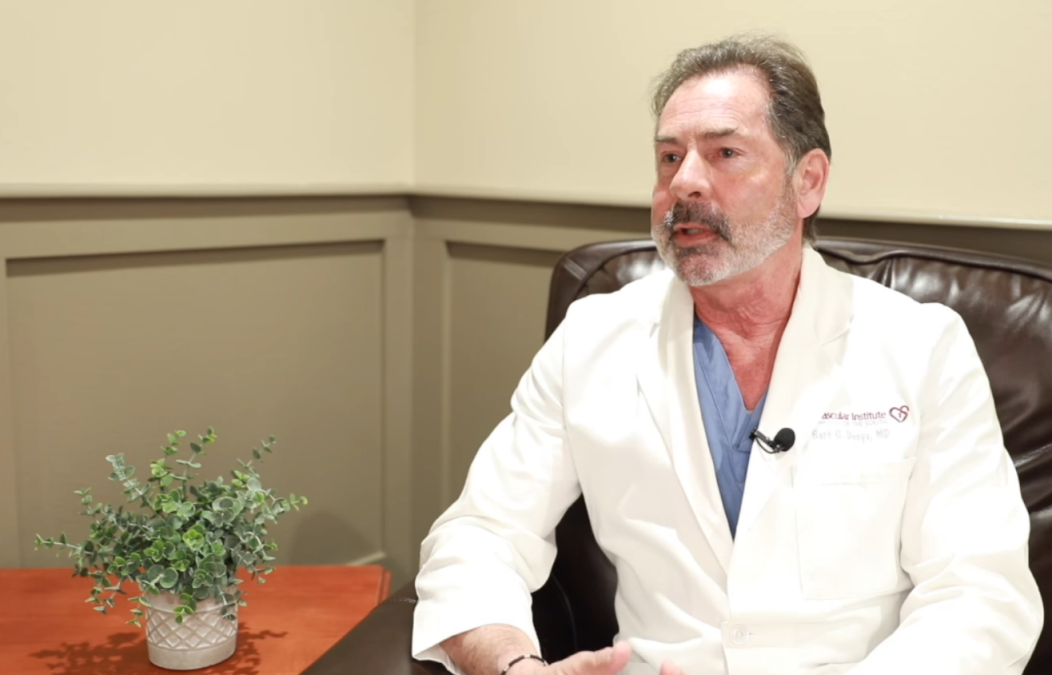
Learn how to fund your education at the upcoming Community Financial Aid Clinic
February 16, 2024
LSU AgCenter Recipe of the Month: Tuna Casserole
February 16, 2024Cardiovascular Institute of the South (CIS) is celebrating American Heart Month this February by creating awareness of cardiovascular disease prevalence and prevention. CIS is offering free cardiovascular screenings at various locations throughout the month to aid in early detection.
Cardiovascular disease claims more lives than all forms of cancer combined, and both Louisiana and Mississippi rank in the top five states for heart disease death rates. The best way to fight cardiovascular disease is to know your risk factors, such as family history or lifestyle, and visit a cardiologist regularly to be checked.
The Houma Times recently conducted an interview with Dr. Bart Denys, Interventional Cardiologist at CIS, to help answer some frequently asked questions about cardiovascular diseases. Originally from Belgium, Dr. Bart Denys joined Cardiovascular Institute of the South as the medical director in Thibodaux in 1994. Dr. Denys is board certified in internal medicine, cardiovascular disease, nuclear cardiology and interventional cardiology. He has written numerous articles and abstracts that have been published in medical journals, and he has presented on many medical topics both nationally and internationally. Read his complete biography here.
The Houma Times: When should someone see a cardiologist?
Dr. Denys: Unfortunately, most blockages begin in our early teens. Most of the people that we see, however, only come in once they experience a major event. When you should see a cardiologist depends largely on your risk factors– for example, if your father died of a heart attack at age 40, you should come see us before age 40. If you buy a new car, you don’t wait until it breaks down to change the oil. But people do that with their bodies. I would like to see male patients at age 40, and female patients around age 50. If you are younger than this and have all the risk factors, then you need to come in and see a cardiologist as soon as possible. The bottom line is, it is never too early to see a cardiologist– but too often it is too late.
The Houma Times: What are some risk factors and symptoms of cardiovascular disease?
Dr. Denys: Common risk factors include smoking, obesity, diabetes, high blood pressure, and high cholesterol, as well as being over the ages mentioned above. As far as symptoms go, heart disease often has no symptoms until you are already at the stage where there are serious problems. If you have a sore throat, you go to your doctor, you get prescribed an antibiotic, and it goes away. Heart disease doesn’t work quite like that, and symptoms will vary depending on the organ involved and the severity. When we think about cardiovascular disease, we think about the heart– but it is a disease that will affect every artery and every blood vessel in your body. Unfortunately, 50% of people experience sudden death as the first sign of a cardiovascular disease. A smaller percentage of people may experience leg pain, angina, abdominal discomfort, or more. The variation of symptoms, and the unlikelihood of presenting any, is why it is so important to be proactive about seeing a cardiologist.
The Houma Times: What is the prevalence of cardiovascular disease in our area, and what is the importance of early detection?
Dr. Denys: The prevalence of heart disease in this area is the highest in the nation. It is never too early to start preventing heart disease. We start treating high cholesterol at age 18, but unfortunately, we rarely see people this young. There is a great resistance and reluctance to come see a cardiologist because we treat things that you often do not feel. As a cardiologist here, patients often tell me, “But I feel good!” and my response to that is, “Well, my goal is to keep you feeling good!” and we can only do that with early detection and prevention.
The Houma Times: What are some lifestyle changes people can modify to decrease their risk of a cardiovascular event?
Dr. Denys: The modifiable risk factors are, most importantly, stopping all tobacco use. The second thing, particularly in this area, is major weight reduction. Lowering your weight decreases your risk of diabetes and high blood pressure, which helps to keep your heart healthy– you can manage your weight through a lower-carb diet and frequent exercise. These simple things could reduce overall risk significantly.
To make an appointment with Dr. Denys or another cardiologist at CIS, please click here.
About Cardiovascular Institute of the South: Founded by Dr. Craig Walker in 1983, Cardiovascular Institute of the South (CIS) is a world-leader in preventing, detecting and treating cardiovascular and peripheral vascular disease. CIS offers a comprehensive heart and vascular program with expert physicians trained in many specialties, including internal medicine, nuclear cardiology, electrophysiology, lipid management, coronary artery disease, peripheral vascular disease, structural heart and valve disease, venous disease and interventional procedures. CIS has earned international acclaim as a pioneer of research, development and education, as well as an innovator in the treatment of peripheral vascular disease. With a dedicated team of more than 1,075 team members, CIS provides comprehensive cardiovascular care at 21 locations across Louisiana and Mississippi, with 11 telemedicine programs. CIS has also been recognized by Modern Healthcare as a Best Place to Work in Healthcare for four years in a row. CIS remains at the forefront of technology, providing the highest-quality, compassionate care. This mission has guided the institute for 40 years of excellence. For more information about CIS, call 1-800-425-2565 or visit their website.







